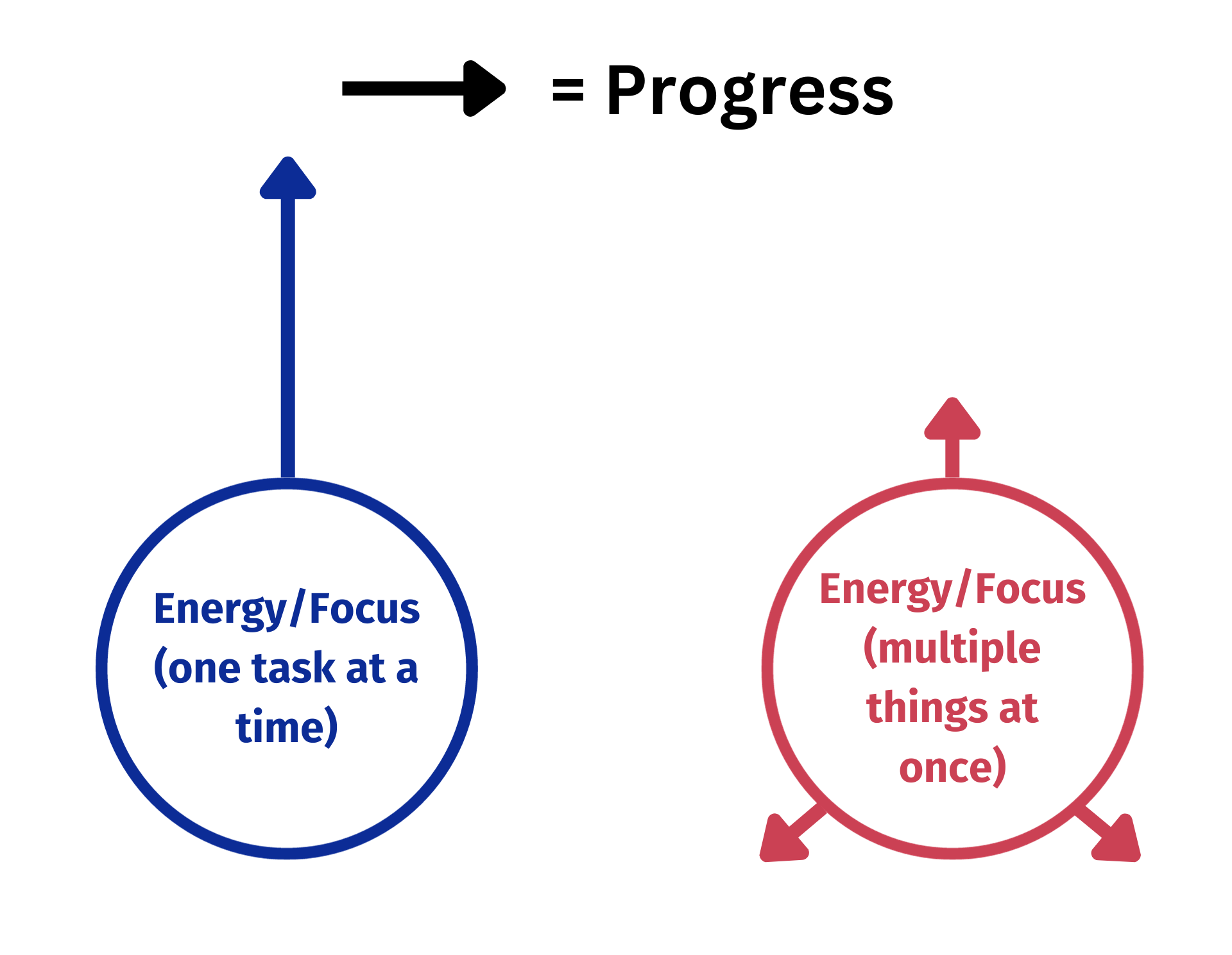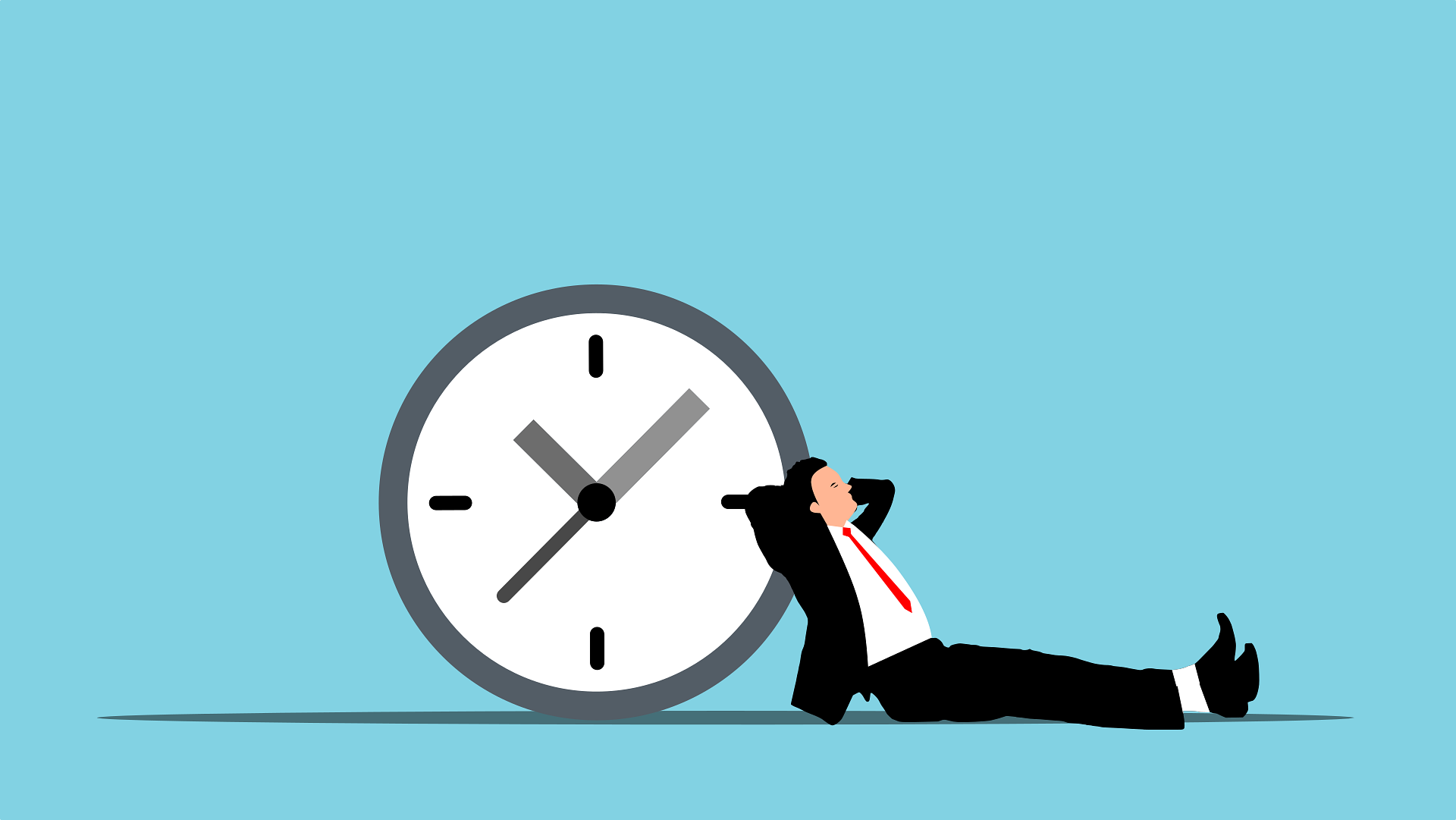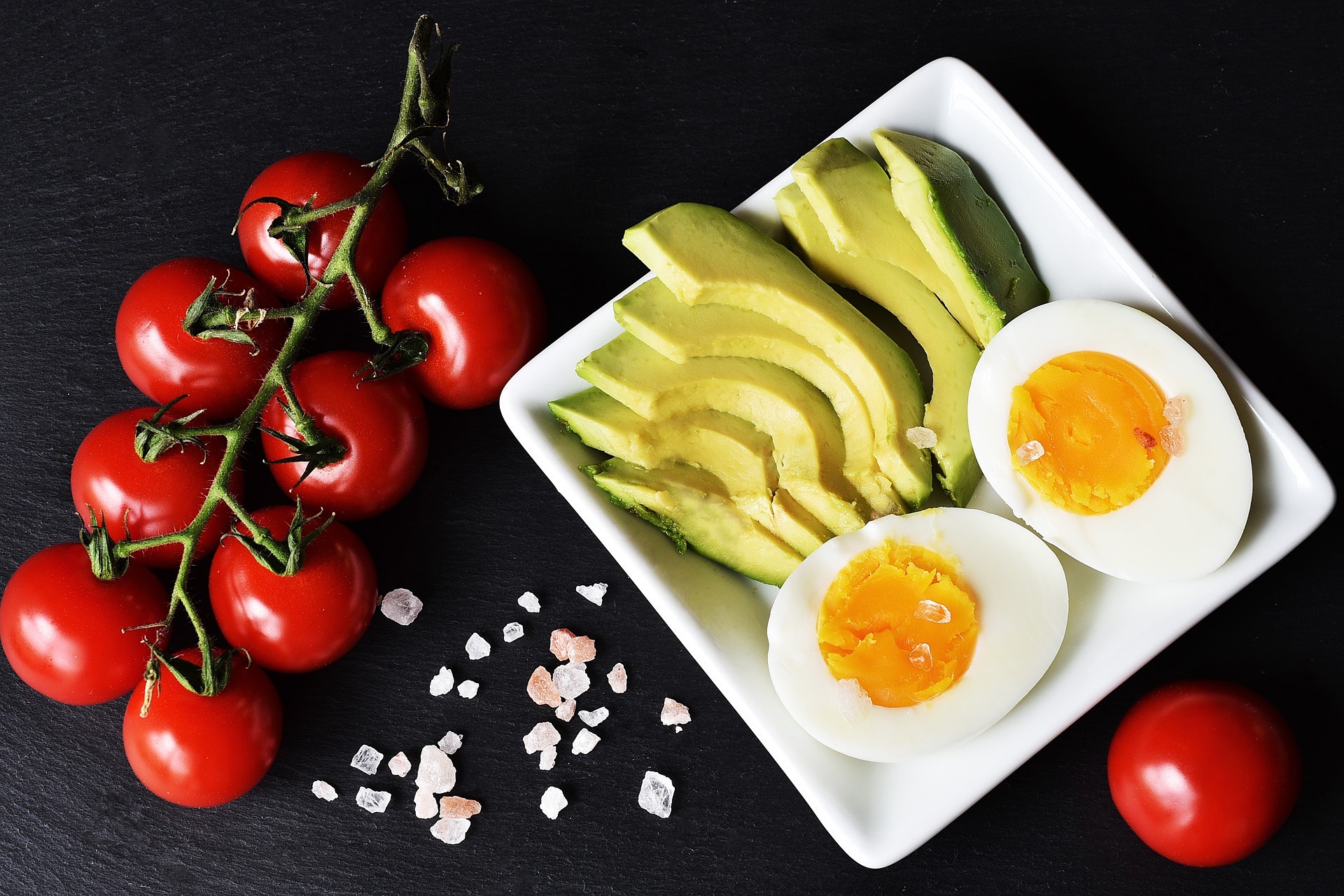3-Bullet Summary
You’ll benefit more from reading the article the whole way through. But, if you’re pressed for time, here’s a condensed version of The 5 Most CRUCIAL Study + Revision Tips (Don’t Ignore These):
- Few students realise that not all minutes spent studying are equal. Minutes spent studying with poor focus and distracted, for instance, are not equal to minutes spent in a deep work state.
- A useful concept to work around this dilemma is study hygiene. Essentially, studying is comprised of many little things that you need to ensure are optimised if you want you it to be ‘clean’ (i.e., effective).
- Although there are many, this article covers 5 key study and revision tips to boost your study hygiene:
You Just Needed One More Hour!
You hunch over your cluttered desk, surrounded by a chaotic jumble of textbooks and notes. Your eyes ache from hours of studying; your brain feels like mush.
Although your motivation is sinking faster than a lead balloon, you realise that you’re really close to the end now.
“Only 5 pages left to go. I’ve got thi…”
Vrrrrrr… Vrrrrrr…
Your phone’s vibrating on the table.
You know that if you focused for another hour or so, you’d be done with studying for the day. All the hard work would be complete, allowing you to rest easy and guilt free.
Vrrrrrr… Vrrrrrr…
“I shouldn’t pick it up,” you say to yourself. “But I really want to,” your tired brain screams.
Vrrrrrr… Vrrrrrr…
…
Vrrrrrr…
You pick the phone up. You’re now on FaceTime with a friend — the one you can chat for hours with.
Looks like the work’s not getting done today after all.
Introduction
Habits make or break your success as a student.
The best students practice the habits that provide them with grade-boosting benefits. For instance, they revise regularly, eat clean, resistance train and sleep well — consistently.
However, out of all the students I’ve worked with in my last 2–3 years of tutoring and coaching, I’ve noticed that there’s one common habit that students really struggle with: studying.
In most cases, it’s not that students can’t muster the willpower to start studying. Instead, it’s that they can’t crack how to do it properly.
If I had a penny for every time a student told me “I don’t have enough time to study all the material,” or “All this extra studying isn’t improving my grades, Sam,” I’d be eating steak at a 5-star restaurant on the warm Croatian coast.
Okay, maybe not that many pennies, but you get the point: students struggle to get the most out of the time they spend studying. They’re (sometimes) just plain inefficient.
Fortunately, resolving this issue isn’t very tricky. We just need a clear idea of what we need to do to force efficient studying. And, in this article, that’s exactly what we’re going to cover.
We’re going to go through 5 science based study and revision tips that will put us in the fastlane to student success. However, instead of doing it the conventional way and go through a BS, no-detail checklist, we’re going to pinpoint exactly what we shouldn’t be doing whilst studying and revising, and learning what to do instead.
But, before we dive into the key study and revision tips, we’ve got to master one key concept that is the linchpin to levelling up your study game…
Study Hygiene
“Hygiene? I’ve not got any problems with cleaning myself!” I hear you exclaim. However, you’d be surprised at how important the concept of hygiene is when it comes to studying and revision.
Let me explain.
Hygiene refers to the things we do to optimise our health and cleanliness. We brush our teeth, wash our hands and don’t eat stuff off the floor, for instance.
Let’s zoom in on that word ‘optimal’ for a second. To optimise is to try to do something as best you can. Although this is pretty much impossible to do, as there’s always something else you could be doing to improve your performance in whatever it is you’re focusing on, it’s a good mentality to have. The reason is simple: the more you focus on improving, the better you’ll get.
Now, here’s a question for you: have you ever tried to optimise your approach to studying?
Think about it; I’ll wait.
…
Probably not, right? Don’t be ashamed, though. Not many students really take the time to zoom in on the micro habits surrounding the core habits they’re practicing.
For example, most students realise the importance of a core study habit (for obvious reasons). But, not many students focus on the small (micro) decisions and actions that surround studying. They don’t take the time to pinpoint exactly what they need to study in exquisite detail. They don’t consider the impact of their environment on their ability to concentrate. Worst of all, they don’t even realise the effects of their phone on their performance (more on that later).
Therefore, if we break down studying into a set of small habits that can be optimised to make the overall studying practice more ‘hygienic’, then the process of studying becomes a whole lot broader. Many different elements of studying start to arise in our minds: desk layout, what we’re doing, the methods we’re employing, etc.
Simply put, the big tasks (core habits) we set out to complete are underpinned by many smaller ones (micro habits). If we neglect these smaller ones or do them wrong, then the bigger ones get impacted negatively, meaning we do them worse.
As a result, because studying is a core habit, we should constantly think to ourselves that there are lots of layers to it. These layers are all important, and if we pay attention to them all, then we can study with higher efficiency.
*Actionable step* — Before going to the next section and digging into the study + revision tips, think about all the different aspects of studying and revision. What are the things that go into effective studying and revision. Then, respond to the following question: “Am I optimising this element?”
5 Crucial Study and Revision Tips
Now that we know studying is not just one thing, but rather the sum of a whole bunch of little decisions and actions, we can start to develop an effective study framework centred around optimising these various components.
To do this, we’re going to go over 5 study and revision tips that target various elements of the core studying and revision habits.
I don’t know about you, but I think it’s time to get down to business. Here are The 5 Most CRUCIAL Study + Revision Tips to consider for top grades.
Tip 1) Be Consistent
Here’s my number one study and revision tip: studying is a long-term game. If you want to get the most from it, you need to do it regularly and over the span of many months.
This is why studies have literally shown that consistency is more important than effort.
Two researchers in 2011, for instance, found that whereas minutes spent studying an online microeconomics course did not have a statistically significant impact on students’ grades, studying frequently and for similar durations each day was a strong predictor1.
In fact, the researchers found that if the variation between a student’s minimum time and maximum time spent studying is 150%, reducing this down to 100% would increase their final grade by an average of 2.5 points (i.e., the difference between a 2:1/B and a first-class mark/A).
So, then, why do so many students study so inconsistently? It’s estimated that approximately 45% of students ‘cram’ for their tests2 and leave studying to the last minute? In other words, 45% of students (probably more) are super inconsistent, and, as a result, 45% of students are doing damage to their grades!
*Practical solution* — Make studying a part of your daily routine. You don’t have to study for super long, either; 2–6 hours daily for many months/years is all it takes. Find times you could fit your 2–6 daily hours in and make executing them your religion. (For a step-by-step to building habits, click here.)
Tip 2) Use the Right Study Techniques
The second most deadly sin bad study habit I see is students using the wrong study techniques.
I cannot begin to explain how many students practice this habit.
To illustrate my point, think about the number of students who use the following study/revision techniques:
- Take notes
- Rewrite notes
- Reread notes
- Read textbooks
- Highlight/Underline
Probably a lot, right?
I mean, studies have shown that almost 96% of students take notes in classes and lectures5.
Well, this is sad, because these methods are what we call passive. This basically means that they don’t challenge our brains and encourage them to become smarter and better and remembering. These methods are therefore unlike active methods, which force our brains to work hard and develop neural connections.
To justify my sadness, research has demonstrated that passive learning is less effective than active learning. One famous paper from 1984, for instance, showed that students who study and revise by teaching what they learn (i.e., an active method) show 80% better conceptual understanding than students using passive methods6. In other words, active learning methods promote deep subject knowledge and the ability to apply what we know from memory, unlike passive methods.
Fortunately, I’ve written an entire article on The Best Study and Revision Techniques (and 5 You MUST Avoid). If you read that one (after this one, of course), then you’ll get a clear picture of exactly which study methods you should be using to maximise the returns you get from your time spent studying.
*Practical solution* — Stop using study techniques that are ineffective. Make sure to read the article on The Best Study and Revision Techniques (and 5 You MUST Avoid), as this will walk you through the essential dos and don’ts of studying.
Tip 3) Do Not Study with Distractions
Of all the study and revision tips on this list, this one pertains to the most students — by far.
I rarely ever see a student who is 100% focused on their studying. Although there are many potential distractions they fall susceptible to, the biggest one is technology.
Specifically, it’s smartphones.
Despite the fact that the smartphone is regarded by 68% of students as their most common source of distraction9! In addition, the average student checks their phone around 30 times per day10, which, when coupled with the fact that most students spend more time on their phones than they want to11, shows that the smartphone is a clear recipe for focus annihilation.
Most students cope at this point and say that they can work well despite having their phone on. My response:

Research has literally demonstrated that every 100 minutes that a student spends using their phone a day leads to the student dropping 6.3 places in terms of their academic school ranking12.
And, it gets even better…
This effect doubles when students accumulate these minutes whilst actually in class — when they’re studying.
Suffice to say, working with distractions is not good for your study hygiene. It stops you from getting focused work done — the work that really moves the needle when it comes to getting good grades.
*Practical solution* — Eliminate all potential distractions from your study environment. If anything, disable notifications and remove your phone from your peripheral vision whilst you’re studying. (For more tips on environment design, click here. For a complete guide to levelling up your focus, click here.)
Tip 4) Avoid Multitasking
To me, multitasking makes no sense. I’ve always thought that the less you have on your plate, the more attention you can pay to the things you do, thereby allowing you to do them better.
To demonstrate, imagine I have 3 things to do today. If I focus on completing each task systematically and divert my full ability and attention to completing them one-by-one, I will do each well. This is because each task is having my full mental energy dedicated towards it.
In contrast, if I have 3 things to do today but try to do them all at once, then my mental energy gets dispersed. This means that I’ll be completing each task at a fraction of my true capability. Therefore, I will perform poorly on each.

This is why I hate seeing students multitasking. They’re literally handicapping their performance.
However, they justify it by saying that multitasking allows them to get more done. They think that by studying and checking their phones simultaneously, they’ll kill two birds with one stone.
But, 3 researchers in 2001 produced a paper (which has now been cited by other researchers over 2000 times) that proved this to be a fallacy13.
The researchers basically wanted to understand how our brains handle switching from one activity to another. To do this, they gave people sets of cards with various numbers, letters and symbols on them, and proceeded to ask them to match the cards according to the numbers, letters or symbols they shared.
Sometimes, however, they switched the rules. One time it was match according to numbers; the next time it was match according to symbols. They used a computer to time how fast people could switch and how many mistakes they made whilst doing so.
The researchers made two crucial discoveries:
- Every time you switch between a task, you incur a switch cost of about half a second.
- Task switching led to an increase in error rate between 1.8% and 10%.
The second is a self-explanatory reason for why not to multitask: when you switch between tasks, you perform worse.
The first seems trivial, though. Half a second, that’s nothing, right?
At face value, no, it’s not a lot. But, when you think about the cumulative effect, it really is. If you are constantly switching between tasks throughout the day, these small delays can accumulate and reduce your overall efficiency and productivity.
In addition, constant refocusing produces mental fatigue and reduced concentration. This justifies why switching tasks in the study led to increased error rate. Your brain can only process so much at once, so forcing it to work in overdrive and switch quickly is a recipe for disaster.
So, do yourself a favour and focus on purely studying when the time comes to study. Not only will you save time (because you’ll study more efficiently), but you’ll also perform better.
*Practical solution* — Avoid multitasking whilst studying. Focus on completing one thing at a time and devoting as much of your attention as possible to whatever you’re studying.
Tip 5) Get Organised
Being disorganised and not having a clear, actionable plan will kill your success.
Too many students (and people, for that matter) set ridiculously vague goals. Instead of getting really specific on their to-do lists, they write things like ‘Study’ or ‘Complete assignment’.
For some students, this can work. But, the students that get away with it are elite. When they see the word ‘study’, they think “actively recall my flashcards for module 1”. They’ve forged a study habit that’s so strong, they don’t even need to think about what to do — they just do it.
The average student, however, sees “study” and gets lost for half an hour the next day trying to find the right pages, flashcards, etc.
Therefore, getting organised just saves you a tonne of time and mental energy. If you’ve read The Perfect Evening Routine for Students, then you’ll know this because we discussed a concept called brain charge.
In short, we start each day with a finite amount of mental energy (‘brain charge’). The more decisions we make and actions we take, the lower the charge gets. Once we’re out of charge, our ability to produce high-quality work greatly diminishes.
Because of the limited capacity our brains have to work well, we want to preserve them for the most mentally challenging tasks. As a student, this means saving your brain charge for studying 2–6 high-quality hours per day.
If you’re disorganised, though, you’re wasting brain charge. You lose 5% tidying your desk, 7% thinking about what to do, etc., and, before you know it, you’re studying with 50% of your maximum brain charge!
It is for this reason I urge students to get prepared the night before the next morning.
Doing basic things like opening your textbook(s) to the right page(s), knowing which modules you’re studying, pinpointing the methods you’re going to use to study, and making sure you have a clutter-free workspace, can save you a tonne of mental bandwidth. This then enables you to do the thing you set out to do: study productively!
*Practical solution* — Before studying, set yourself up for success. Specifically, write a detailed to-do list that covers the work you’re doing tomorrow, and make sure there are no hurdles sucking up your brain charge before studying, including things like clothing decisions, desk clutter and not knowing where things are. Repeat this forever.

Final Thoughts: The 5 Most CRUCIAL Study + Revision Tips (Don't Ignore These)
Studying is a bit like washing the dishes.
You know you need to do it, but sometimes it’s a bit of a chore.
In addition, it’s also one of those things that requires attention to detail. If you do it poorly, then you’ll be eating dinner tomorrow with remnants of yesterday’s (i.e., you’ll make future you’s life harder). By contrast, if you do it well, then you can eat dinner tomorrow off a clean plate that makes you feel proud (i.e., you’ll make future you’s life better).
In this article, we’ve been through exactly how to make your metaphorical study plate as clean as possible.
We did this by first learning about the concept of study hygiene, and, secondly, covering the 5 most crucial study and revision tips related to improving it.
If you take action on this article, the minutes you spend studying will be far more effective. This means you’ll need less of them to get the top grades.
In contrast, if you fail to improve your study hygiene and leave the metaphorical study plate dirty, then you’ll have to dedicate more time to get average results. You can look for all the best study and revision tips in the world; if you don’t take action, then your grades won’t change.
It’s your call.
Before closing out this article on The 5 Most CRUCIAL Study + Revision Tips, though, a quick note.
In this article, we’ve focused on habits a lot. I truly believe that habits make or break the Strong Student, so getting them to work in your favour can be the difference between B’s and A’s.
If you’re interested in developing habits that will genuinely level up your grades (which, in my opinion, you’d be crazy not to), then I strongly recommend claiming your *free* copy of The 10 Secrets of Strong Students ebook. For no cost at all, you get access to a host of science-based strategies that’ll open the door to student success.
When I say that ebook will revolutionise your grades, I’m not exaggerating. Give it a look and see what I mean…
For this article, however, that’s a wrap.
Time to go and wash the dishes, am I right?
🧼✨
Stay strong,
Sam.
Founder, Strong Students.







